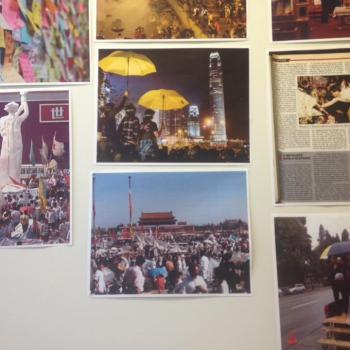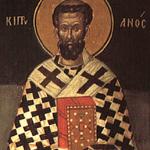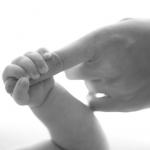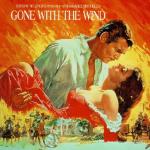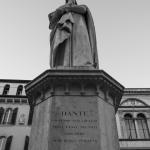清明時節雨紛紛
路上行人欲斷魂
借問酒家何處有
牧童遙指杏花村
The drizzling rain at Qingming time
The rending flesh of the pedestrians
Where to find a pub to drink my sadness?
A cowherd points to Almond Flower Village.
–杜牧 Du Mu
Since before the days when Qin Shihuang conquered the various warring states that came to constitute the imperial Middle Kingdom, there has been the tradition of the Qingming Festival. Originally commemorated in memory of the accidental burning of a Spring and Autumn Period official’s servant, the festival has developed since the Tang Dynasty to be a day to honour the dead by sweeping the graves of ancestors, carrying willows and flowers to ward off evil spirits, and more recently, remembering the deaths of intellectual dissidents in twentieth-century Chinese history.
Typically, Qingming Festival falls on April 5.
But this year’s Qingming Festival falls on April 4.
And incidentally, April 4 is the anniversary of the assassination of the Rev. Dr. Martin Luther King, Jr.
I think this warrants some theological reflection, particularly from Chinese North American Christians, about our solidarity in the struggle for human rights.
On the night before he died, King preached at Mason Temple in Memphis, Tennessee. His sermon came to be known as, “I’ve Been to the Mountaintop,” and his words that night foreshadowed his assassination the next day:
Well, I don’t know what will happen now. We’ve got some difficult days ahead. But it doesn’t really matter with me now. Because I’ve been to the mountaintop. And I don’t mind. Like anybody, I would like to live a long life; longevity has its place. But I’m not concerned about that now. I just want to do God’s will. And He’s allowed me to go up to the mountain. And I’ve looked over. And I’ve seen the Promised Land. I may not get there with you. But I want you to know tonight, that we, as a people, will get to the Promised Land! And so I’m happy tonight; I’m not worried about anything; I’m not fearing any man: mine eyes have seen the glory of the coming of the Lord!
Incidentally, Sam Wells also has a great meditation on death and Steve Jobs through the Mountaintop speech as well.
Asian American scholar Glenn Omatsu protests the domestication of the Asian American participation in the civil rights movement. He points specifically to King and says that the invocation of his tradition of non-violence has overshadowed the radical actions taken by the Third World Liberation Front in 1968 to found ethnic studies departments in California universities. For Omatsu, it’s not the legacy of King that needs to be reclaimed for our solidarity for rights, but that of Malcolm X.
I take issue with Omatsu.
When King said that he had been to the mountaintop, it would be right to think that he’s invoking Moses climbing Mount Nebo to look over into the Promised Land that he wouldn’t be able to enter with the beloved community. Most would remember his dream articulated at the March on Washington that his “four little children will one day live in a nation where they will not be judged by the color of their skin but by the content of their character.” For Omatsu, it’s precisely this that has led to a neo-conservatism among Asian Americans who believe themselves to have made it economically as “the model minority.” America is finally colour-blind, say the suburban dwellers; the dream has been realized. Omatsu is disgusted.
But a closer look at King’s sermon complicates things. Sure, King is a Moses figure, but the Promised Land of which King speaks does not refer to a colour-blind nation. Rather, it’s about a global human rights revolution in the second half of the twentieth century, a call to freedom just like Moses called on Pharaoh to let the children of Israel go:
Something is happening in our world. The masses of people are rising up. And wherever they are assembled today, whether they are in Johannesburg, South Africa; Nairobi, Kenya; Accra, Ghana; New York City; Atlanta, Georgia; Jackson, Mississippi; or Memphis, Tennessee–the cry is always the same: “We want to be free.”
King had been to the mountaintop. He had seen the sit-ins, the Freedom Rides, the Albany Movement, the Civil Rights Bill, the March on Washington, the March on Selma, and the action for which he was in Memphis. Like Moses, King had been to the mountaintop, and he had seen the Promised Land of justice and equality for the least of these, the coloured colonized by white supremacy and the impoverished trampled by an economic oligarchy. Interpreting the story of Exodus through the lens of solidarity, he sees that Pharaoh’s tactic for keeping the slaves enslaved is to divide them among themselves, to keep the ministers only thinking about themselves and preaching irrelevant airy-fairy hopes of white robes, milk and honey, and streets of gold over yonder while people here go naked, live in slums, and stay hungry. “But whenever the slaves get together,” King preached, “something happens in Pharaoh’s court, and he cannot hold the slaves in slavery. When the slaves get together, that’s the beginning of getting out of slavery.”
For King, at that moment, what was needed was direct action for the case at hand: justice for sanitation workers in Memphis wearing black T-shirts and holding signs that read, “I Am a Man”: “Let us keep the issues where they are,” he said. “The issue is injustice. The issue is the refusal of Memphis to be fair and honest in its dealings with its public servants, who happen to be sanitation workers.” Here, he fuses the Moses tradition with the Jericho Road in Jesus’ parable of the Good Samaritan. As he puts it in the speech, just like the Samaritan stopping on the “Bloody Pass,” we too must realize that the plight of the sanitation worker in Memphis is our plight as well. He imagines the priest and the Levite passing up the bloodied robbed man because they fear that he might be bait to lure them to bandits, or worse, he might be a con artist himself. King speculates that they probably thought, “If I stop to help this man, what will happen to me?” He then interprets the Good Samaritan as asking: “If I do not stop to help this man, what will happen to him?” King then continues:
That’s the question before you tonight. Not, “If I stop to help the sanitation workers, what will happen to my job?” Not, “If I stop to help the sanitation workers, what will happen to all of the hours that I usually spend in my office every day and every week as a pastor?” The question is not, “If I stop to help this man in need, what will happen to me?” The question is, “If I do not stop to help the sanitation workers, what will happen to them?” That’s the question.
It was for this that King knew that he was going to his death. He talks about getting on the plane from Atlanta that morning, of the pilot’s voice coming over the public address system saying that because King was on board, they had had to take extra security cautions because of the threats on King’s life coming from Memphis. He remembers that before what we now know as the Civil Rights Movement happened, he had been stabbed while signing books, and the blade had come so close to his aorta that The New York Times reported at the time that if he had just sneezed, he would have died. He knew this because what he was doing was radical because he wasn’t just calling for everybody just to get along in a colour-blind nation. (And by the way, as James Cone points out, King and Malcolm X need not be pitted against each other, but can rather be seen as complementary figures in the black liberation movement.)
He was calling for class solidarity as the rubric of racial reconciliation and social justice. He had protested the Vietnam War, particularly because African Americans were disproportionately drafted, and now he was marching on poverty, calling for economic action on the part of everyone listening to him: “If it means leaving work, if it means leaving school–be there. Be concerned about your brother. You may not be on strike. But either we go up together, or we go down together.” He was calling for both marches and outright boycotts on unjust corporations, “bank-ins” to take money out of mainstream banks and put them in black banks, and “insurance-ins” where black people could buy insurance plans from black insurance companies. He was calling for an Occupy movement before there was an Occupy movement; he was advocating precautions for the beloved community before the idea of subprime mortgages targeting African American populations was even invented. And for him, this Memphis case of sanitation workers was the perfect case where the rubber met the road because for King, the measure of a society was how the sanitation workers were treated. Radical? Yes. It’s what got King killed.
Perhaps it’s only right that the anniversary of the assassination of King and the Qingming Festival fall this year within Holy Week in the liturgical calendar. Jesus’ Good Samaritan parable was offensive precisely because as Dietrich Bonhoeffer puts it in Letters and Papers from Prison, it focused Christian practice on being “the Man [sic] for Others.” It was told to a lawyer who wanted to justify himself for having fulfilled the commandment of loving one’s neighbour as oneself. Jesus turned the lawyer’s world upside-down, telling him to go and do as a Samaritan would have done to go out of his way to help a bloodied stranger of the wrong geopolitical stripe on the Bloody Pass of the Jericho Road.
This was arguably what got Jesus, Bonhoeffer, and King killed. The offence was a radical view of the neighbour. Will we indeed love our neighbours as ourselves? What if the neighbour is of the wrong nationality? the wrong race? the wrong class? King’s words ring in our ears: The question is, “If I do not stop to help the sanitation workers, what will happen to them?” That’s the question.
This is a question for reflection for Chinese North American Christians today. Qingming Festival is a day to honour the dead, yes. But to be Christian is not merely to honour our own dead, those within our own family or those within the diaspora that we call “Chinese.” King’s legacy–one that also garnered us civil liberties–begs us to come out of the convenient labels that we’ve constructed for ourselves–“Chinese,” “Asian,” “Asian American”–and realize that our solidarity with the poor for justice cuts across racial, ethnic, and class lines. There is a saying among Chinese in the diaspora that we should only sweep beneath the awnings of our own homes. The irony of this year’s Qingming Festival is that it calls us precisely to repent of this notion.
Yes, we honour our ancestors today. Some of these, yes, are the Chinese political dissidents that we remember yearly. But one of these is also the Rev. Dr. Martin Luther King, Jr. Try that, friends, for much-needed reconciliation between Chinese American and African American communities today. Perhaps our Chinese churches should bring hoodies and a bag of skittles to church too. It is, after all, the Qingming Festival.
But more than that, as the Qingming Festival and King’s assassination anniversary both fall in Holy Week, we also remember as Christians the one who has gone before us from death to life, Jesus Christ. We have hope in King’s vision not because of King’s death, but because the resurrection of Jesus Christ at the end of this Holy Week reminds us that King’s blessed hope is ours as well. Strangely enough, this has been precisely what Pope Benedict XVI has been saying to the faithful regarding charity during this Lenten season:
The Lord’s disciples, united with him through the Eucharist, live in a fellowship that binds them one to another as members of a single body. This means that the other is part of me, and that his or her life, his or her salvation, concern my own life and salvation. Here we touch upon a profound aspect of communion: our existence is related to that of others, for better or for worse.
Qingming Festival and the assassination of King are not the end of the story of solidarity–indeed, of communion–with the least of these. They are the beginning: “I may not get there with you. But I want you to know tonight, that we, as a people, will get to the Promised Land!”








